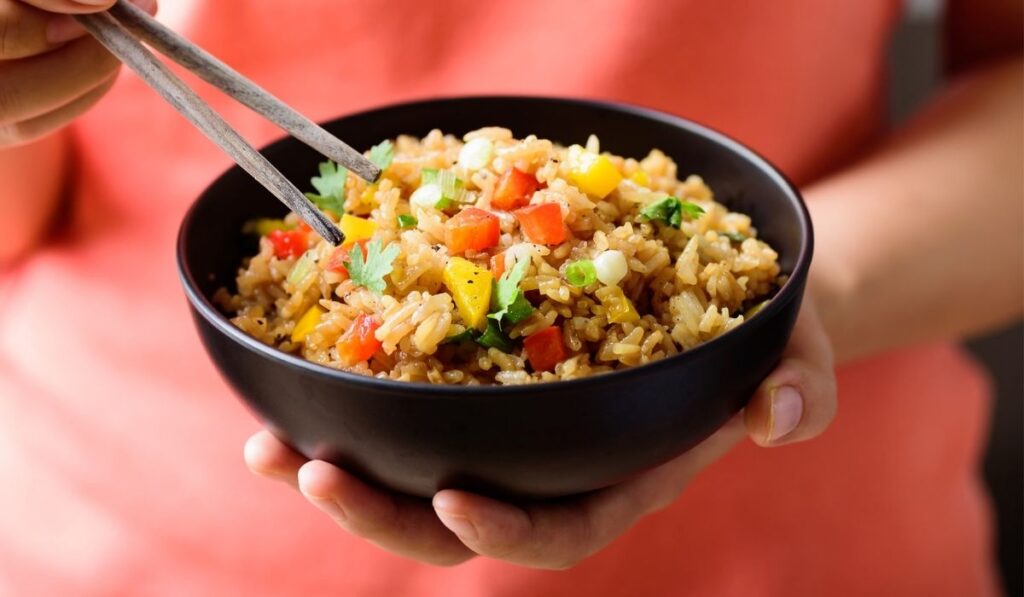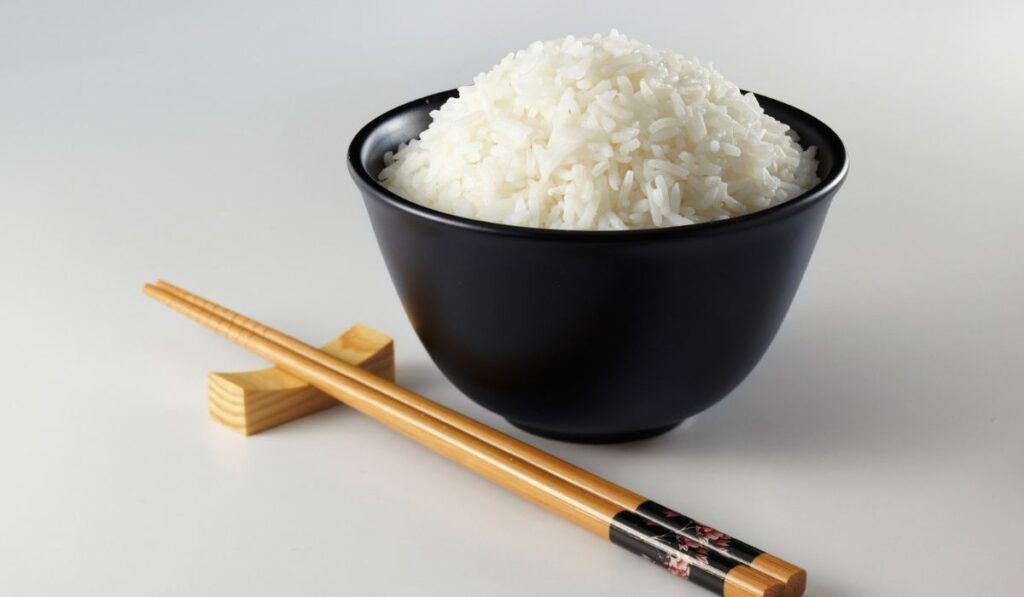Rice and other grains have been around for thousands upon thousands of years, and are enjoyed by people around the world. If humans have been consuming rice for this long, it has to be safe, right? Unfortunately, this may not be the case.
Without good oral hygiene, rice and other starchy foods can negatively impact teeth and gums. Starches are broken down into sugar by your saliva, and the sugars then interact with the bacteria and plaque, producing acid which can dissolve your enamel and lead to cavities, gum disease, and decay.
Although humans have been cultivating rice for over 10,000 years, we didn’t start milling rice until the early 19th century. Milled rice lacks the nutrients normally found in whole grains, resulting in a more harmful product. So, should you cut out white rice and simple carbs altogether? Here’s what you need to know.
How Does Rice Affect Your Teeth?

White rice, white bread, starchy foods, and other simple carbohydrates can negatively impact your teeth. The high amounts of starch found in these foods are broken down into sugar by saliva, and then acid is produced that can begin to cause other problems.
To avoid adverse health complications, be sure to practice moderation and good oral hygiene. Speak with your dentist regularly and get their advice before making any health decisions. Also, drinking water during and after you eat can help keep the chemistry of your mouth in balance until all the food is gone (though brushing is critical to remove pieces of food between teeth, at the gum line, etc.).
Can Rice Contribute to Tooth Decay?
This may seem like a big leap to take, but white rice can contribute to tooth decay and gum disease. Simple carbohydrates like white rice, white bread, and potato chips contribute to gum inflammation and tooth decay.
As we mentioned, simple carbohydrates and starchy foods are converted into sugar upon entering your mouth. That converted sugar then interacts with the bacteria and plaque in your mouth, producing acid. The acid can weaken your enamel, resulting in decay and other health complications.
Furthermore, the starch found in these foods can get stuck in between your teeth and molars. Starchy foods caught in your teeth can further your exposure to harmful acids and bacteria.
Can You Eat Rice Without It Harming Your Teeth?
It would be foolish to advise someone to completely cut rice, fruits, pasta, and other simple carbohydrates out of their diet completely. However, there are ways you can protect your teeth even if you consume a lot of these foods.
Practice Moderation
Practicing moderation is some of the best advice we can give. Reducing your consumption of white rice and other simple carbohydrates will reduce the amount of exposure your teeth have to harmful bacteria.
Switch to Whole Grains
Switching to whole grains is another way to enjoy rice while reducing harm to your teeth. Whole grains are packed full of vitamins, nutrients, and minerals that can benefit your health beyond your oral hygiene. Whole grains also have less sugar than simple carbohydrates, resulting in less harmful bacteria.
Brown rice and whole-grain bread are great places to start experimenting. Try Lundberg Family Farms Organic Brown Long Grain Rice (on Amazon) or 365 Multigrain Bread (also on Amazon).
Pair With Calcium-Rich Foods
The sugars and starch found in white rice get converted into acid, resulting in harmful effects on your teeth. On the other hand, foods that contain high amounts of calcium are incredibly beneficial for your teeth. Milk, cheese, and other dairy products can help neutralize and kill harmful bacteria found in your mouth.
Although it may seem odd, try pairing your next bowl of white rice with milk or cheese. Doing so can reduce the harm caused by the starches, sugars, and bacteria found in white rice.
Rinse After Eating
Rinsing your mouth out with tap water after consuming white rice, white bread, and other simple carbohydrates is another way you can prevent tooth decay. Rinsing your mouth out with tap water after a starchy meal helps reduce the bacteria and acidity in your mouth, returning your pH balance to normal.
Brush and Floss Regularly
Another way you can prevent damage to your teeth, enamel, and gums is by practicing good oral hygiene. Be sure to brush a minimum of two times and floss at least once per day. Wait at least 30 minutes and up to one hour to brush your teeth after eating.
Consult Your Dentist
Visiting and consulting your dentist is another way to prevent damage to your teeth. Besides practicing proper oral hygiene and moderation, regular cleanings can drastically improve your oral health. Be sure to consult your primary dentist before making any changes to your lifestyle or diet.
Does Rice Damage Your Gums?

Unfortunately, white rice and other simple carbohydrates can also damage your gums. These types of foods are high in sugars, which, as you know by now, get converted into harmful acids. Diets with high amounts of simple carbs have been linked to increased gum inflammation and disease.
Early-stage gum disease is known as gingivitis. Gingivitis can cause swelling, inflammation, bleeding, sensitivity, and more. If left untreated, gingivitis can lead to more severe forms of gum disease.
Severe cases of gum disease can, in turn, lead to loosening teeth, periodontitis, and other adverse health consequences.
Should You Cut Out Rice All Together?
Although white rice can damage your teeth, it may not be necessary to remove the food entirely. Practicing moderation and good oral hygiene are a few ways to improve your oral health.
Switching to whole grains, eating more calcium-rich foods, and rinsing after you eat are a few ways you can prevent damage to your teeth and gums.


